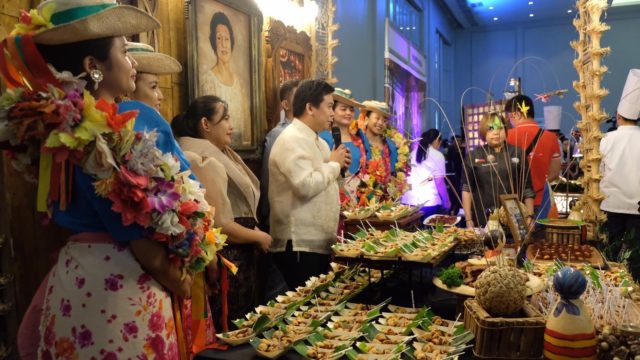(Dishes from Bulacan.)
Food has been an integral part for Filipinos in bringing the whole family together and celebrating the best moments in life. In Central Luzon, every province offers a different twist of iconic dishes that one must never miss.
Showcase of famous cuisines was part of the activities during the recently concluded first Central Luzon Expo held at the ASEAN Convention Center in Clark Freeport Zone. Organized by the Central Luzon Growth Corridor Foundation Inc. under the leadership of Tarlac Governor Susan A. Yap, its goal was to lure investors and travelers alike in experiencing the B.E.S.T. of the region. B.E.S.T stands for Business Friendly, Environmentally Sustainable, Strategically Located and Tourism Destination.
What the Melting Pot of Central Luzon has to offer
One of the highlighted dishes by the province of Tarlac is the Sinigang sa Culibangbangwhich is cooked using only two ingredients, an organic chicken and the alibangbangleaves also known as culibangbang. At first sight, it can be your simple meal during lunch but Chef Ma. Lourdes Reyes Murray stressed that it has a story to tell.
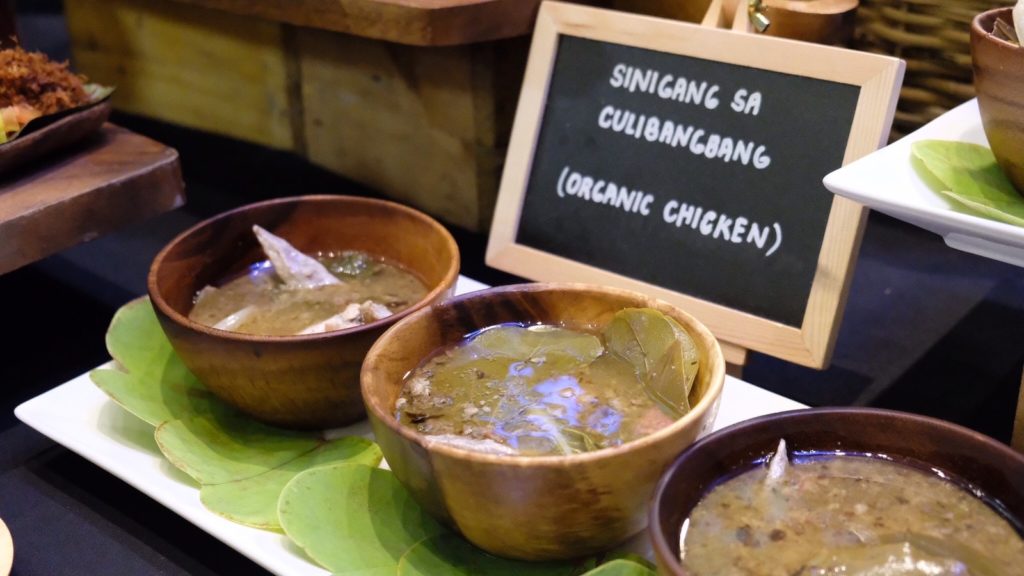
(Tarlac’s Sinigang sa Culibangbang.)
“This dish originated from the Abelling tribe in San Jose town. Before cooking, the tribe catches the chickens by running around and then they cook sinigangwith it using alibangbangor culibangbang. Actually, our Governor’s idea is to propagate this dish to the entire Tarlac. Our chicken in alibangbangis organic and it is slow cooked overnight in wood fire,” she said in an interview.
The chef, who owns The Shed Cafe Kitchen and Organic Shop, admitted that their province shares cultures and traditions with neighboring provinces in the region.
“Tarlac is the melting pot of Central Luzon, so our dishes are combinations from different provinces but Tarlac has many things to offer like the Sinigang sa Culibangbangthat was created by our local tribe. We also have a big production of goat so we have here adobong kambingwhich is really extraordinary because it is sweet and spicy unlike those of pork and chicken,” the chef added.
Best cuisine from the Rice Granary of the Philippines
From the Melting Pot of Central Luzon to the Rice Granary of the Philippines, the province of Nueva Ecija is known for producing the largest rice yield in the country which is why it’s not surprising when the presenter showcased their rice dish with a different twist.
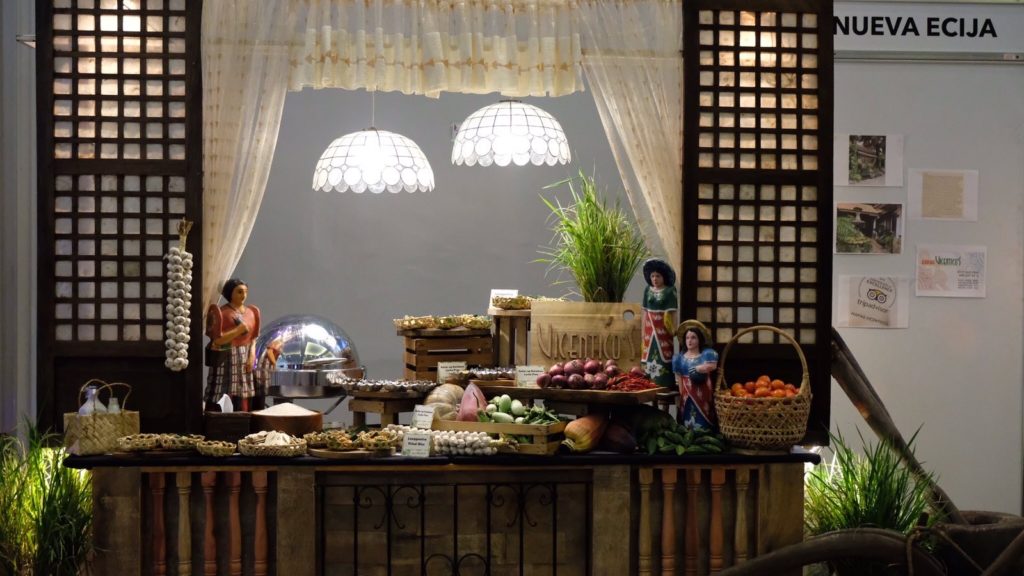
(Dishes from Nueva Ecija.)
“We are highlighting our bigasor rice as our pride so I presented fried rice with longganisa which is really popular in Cabanatuan City,” Pia Salazar of Hapag Vicentico’s said. Celebrated during Longganisa Festival, Batutayis a Filipino beef sausage with a distinctive sweet taste.
“We also have here the gatas ng kalabaw leche flan since carabao milk is abundant in our province as well, so its a creamier version, it’s softer and very delicious,” she furthered.
Delicacies from the home of the sweetest mango in the world
“For me, since one of the sweetest mango in the world is found in our province, here as a Zambaleño, I tried my best to present recipes showcasing our mango which is Zambales mango,” Chef John Ver Sabangan of Isla De Potipot Hotel and Beach Resort said.
Sabangan presented an array of delicacies with mango as its main ingredient such as the Mango Shrimp Shooter, Chicken Mango Puree, Mango Cheesecake, and Zambales Mango Wine.
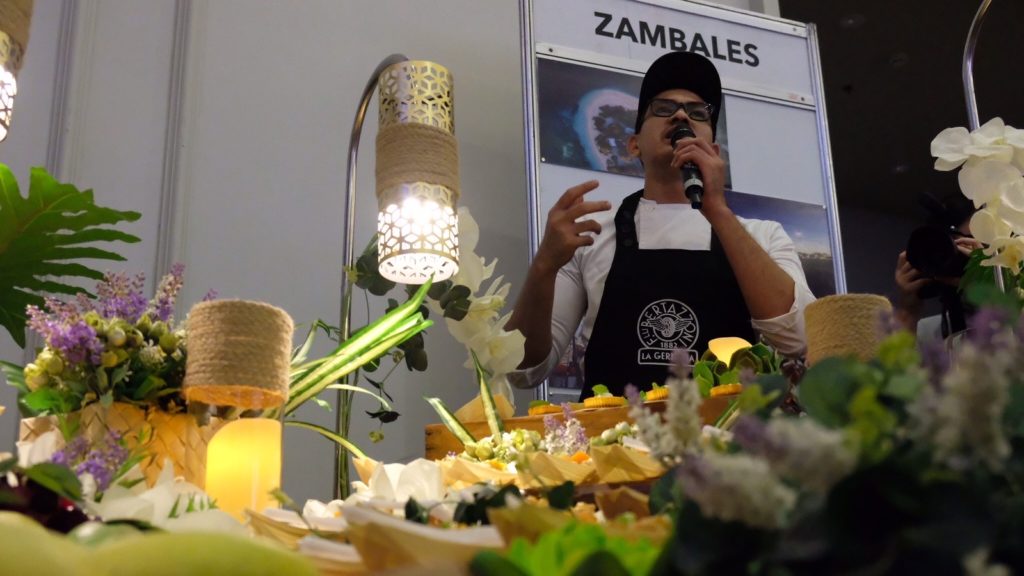
(Known for being the sweetest of its kind in the world, mango in the province of Zambales served as the main ingredient for the dishes prepared by Chef John Ver Sabangan.)
“We can’t really boast an original recipe we can call our own although Zambales is known as the home of the sweetest Mango in the world according to the Guinness Book of World Records,” Sabangan added.
Other dishes Filipinos should not miss
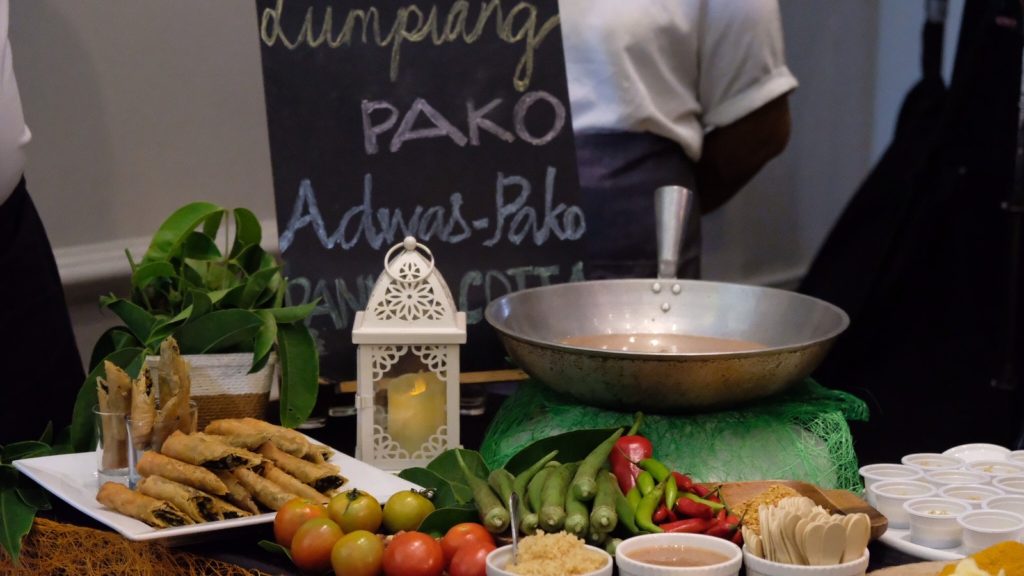
(Aurora’s Lumpiang Pako. )
Aurora showcased Lumpiang Pakowith a dip made from santolcooked in coconut milk. Pako is a fern vegetable common to the Filipino people which is abundant in farms in the province.
Meanwhile, Bulacan featured Hamon Bulakeñawhich was said to have been originated in the province prior to the arrival of the Spaniards. Other food served include Gurgurya cookies and Pinaso dessert.
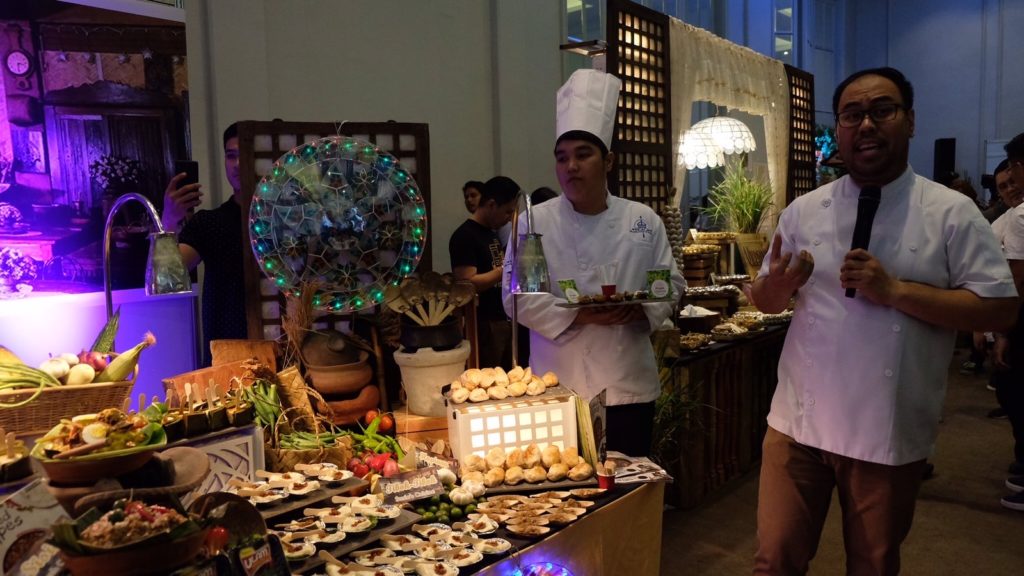
(Dishes from Pampanga.)
For the Culinary Capital of the Philippines, Sisig will always be on the top list of iconic Kapampangan dishes. The famous cuisine that originated in Pampanga consists of different pig parts mixed with chicken or pork liver.
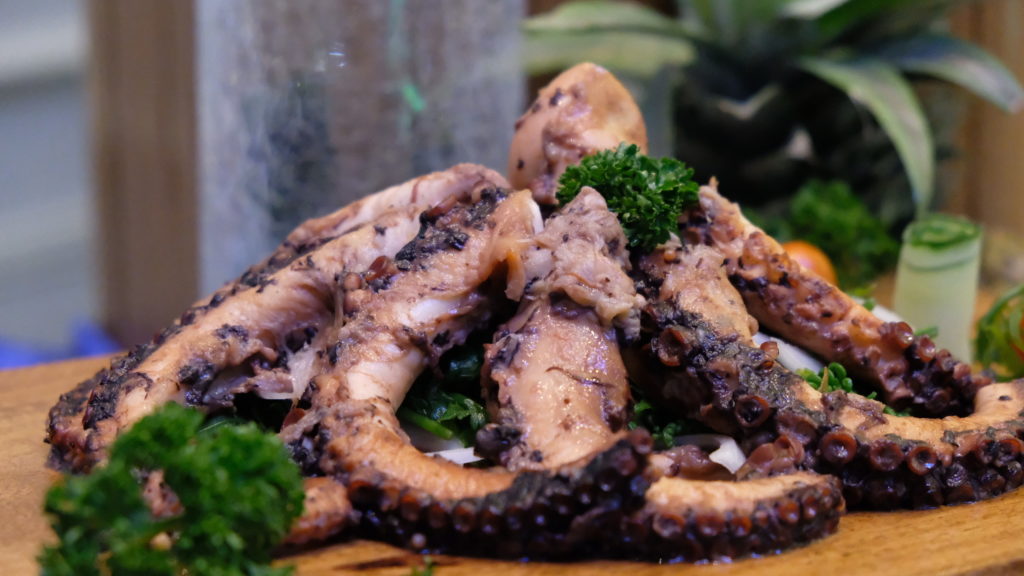
(Bataan’s Pininyahaang Kulita.)
Bataan, on the other hand, showcased mouthwatering dishes with seafood as its main ingredient. It featured a Lumpiang Tinapawith Tinapang Kapakas the main ingredient. It also served the Pininyahang Kulita with pineapples and baby octopus as ingredients.
Guests not only tasted dishes from the seven provinces but also learned how food can able to bring up history and culture.
Event Chef Curator and Apag Marangle owner Manuela Cherry Pasion-Tan said food represented by each province has its own distinction and cannot be compared to those prepared by others.
“We’re having this presentation beacuse first, we want to preserve what is authentic, what is traditional in each province. And number two, we want to pursue on researching and looking for recipes and ingredients from each province and number three, we want to promote this authentic dishes to the new generation,” she said.
So, tara Kain Tayo! Let us taste the best of Central Luzon cuisines. (CLJD/MJSD-PIA 3)


